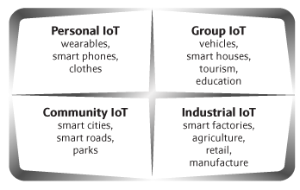I like to think that I have free will. So it was devastating to read in the April 23 Wall Street Journal that, thanks in part to to analytics, the thing that puts bread on my family’s table, free will is getting busted!
Jonah Lehrer writes:
I like to think that I have free will. So it was devastating to read in the April 23 Wall Street Journal that, thanks in part to to analytics, the thing that puts bread on my family’s table, free will is getting busted!
Jonah Lehrer writes:
In recent decades, scientists studying the human brain have steadily eroded traditional notions of free will and autonomy. It turns out that our choices are often circumscribed by mental circuits beyond our control and outside of conscious awareness.
But now, thanks to new forms of data, such as cellphone information, and powerful analytical tools, scientists can see the forces that shape our lives from the outside. They can discover striking correlations and document all of the different ways that the world around us—from our social networks to the neighborhoods in which we live—influences everything we do.
The author goes on to give examples (mostly drawn from research studies on social networks) of how our friends and family affect our behavior.
- If our friends are obese, we are more likely to be obese
- If our friends are happy, we are likely to be happy
- If we have a diverse circle of friends, we are more likely to be creative in our entrepreneurial pursuits
I couldn’t understand how this implied the absence of free will so I kept reading.
Such studies are a reminder that John Donne was right: No man is an island. Although we can’t help but believe in our autonomy—free will is a fiction we need—this latest research suggests we’re not nearly as free as we typically assume.
That’s why, for instance, researchers can make accurate predictions about our eating habits, academic interests and political beliefs based on the trail of data secreted by our smartphones. It’s also why companies such as Amazon and Netflix can develop shopping algorithms that know exactly what we want, even though they know nothing about us. The data generated by the group can be used to decipher the individual.
The author makes two arguments:
- If the people around you influence your actions, you are showing less free will.
- If I can predict what you will do next, you are showing less free will.
The people around us constrain our actions, for sure, but they don’t usually narrow them so heavily that there’s only one pre-ordained choice for us to make in every situation. There’s still plenty of decision-making wiggle room.
Regarding his second point, I don’t see why he needs to bring in “the trail of data secreted by our smartphones” or “powerful analytical tools” to make his case. Here’s an example that is several thousand years old: I offer you product X (substitute X = goat, yacht, iPad, whatever) either for free or for a thousand Y (Y = ears of corn, shekels, dollars, whatever). Can I predict which option you will choose? I can. Does this mean that you don’t have free will?
Want examples of the “striking correlations” the author refers to? As price rises, demand tends to go down. On rainy days, you will see more umbrellas. If your kids come home with the flu, you are more likely to catch it. Yawn.
Perhaps the author means “individuality” when he says “free will”. From that perspective, the article makes much more sense. But it won’t get blogged about as much
Bottom line: Free will’s existence may well be under attack but there’s no evidence that analytics or smartphone data is to blame. No need to change my comfortable (and possibly wrong) beliefs.







-330x220.jpg)
